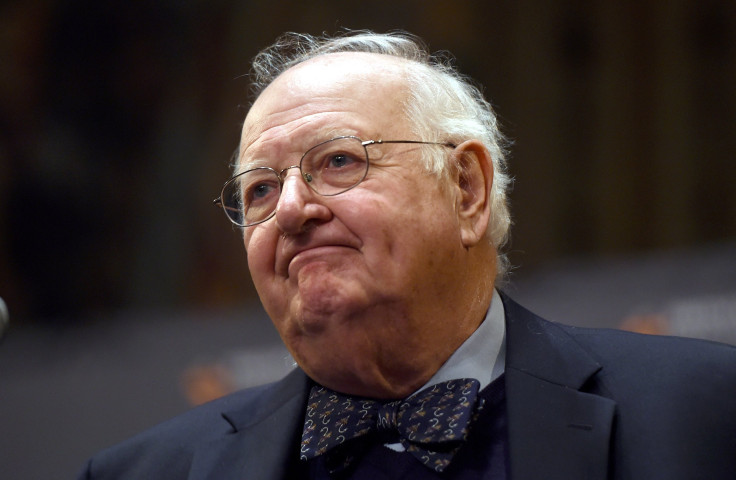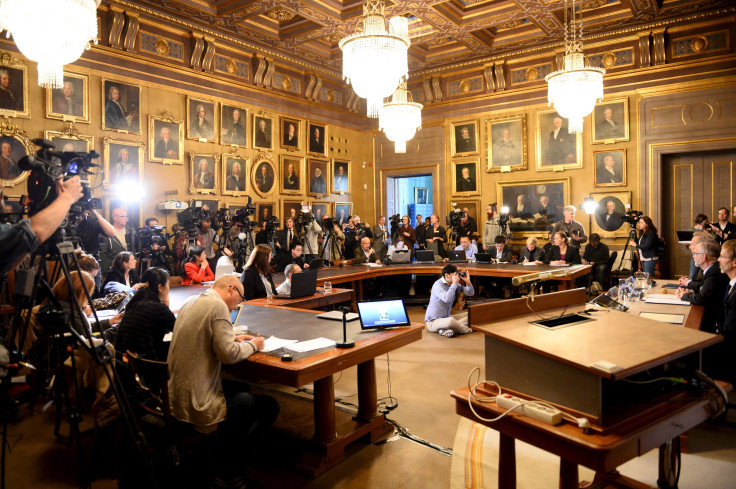Who Is Angus Deaton? How Nobel Economics Prize Winner's Income Inequality Research Challenged 'Wealthier Is Healthier' Notion

When renowned Scottish economist Angus Deaton first came to the United States in the 1970s, he immediately noticed a lack of interest in income inequality, whether among academics, the general public or politicians. When giving a talk on how optimal taxation might level out classes, Deaton was “met with blank stares,” he wrote in a letter last year to the Royal Economic Society. But that didn’t discourage Deaton, now a Princeton University professor who on Monday was awarded the 2015 Nobel Memorial Prize in Economic Sciences.
Decades later, his research linking individual consumption choices and aggregate outcomes has transformed the fields of micro and macroeconomics. The Royal Swedish Academy of Sciences in Stockholm, which announced the economic prize, said Deaton’s work enhanced the understanding of spending habits, which is crucial to designing economic policy that promotes welfare and reduces poverty, by focusing on household consumption surveys rather than income data. He also challenged the notion that “wealthier is healthier” by studying quality of life in developing countries, particularly South Africa and India.
"American economists did not focus on income inequality because it was very inconvenient for them to do so," Uwe E. Reinhardt, an economics and public affairs professor at Princeton University in New Jersey, whose office is just a few doors down from Deaton's, said. "Angus obviously rubbed their little noses in it."
Over the years, Deaton’s research has spanned a broad field. The work for which Deaton was honored Monday revolved around three key questions, according to the academy: How do consumers distribute their spending among different goods? How much of society's income is spent and how much is saved? How do we best measure and analyze welfare and poverty?
Deaton's reputation as a leading microeconomist was founded on his early work on consumer theory and applied econometrics. He developed the Almost Ideal Demand System in 1980, his approach to studying consumer behavior that links the demands for goods with the prices of all goods and individual incomes. It has since become a standard tool both in academia and practical policy evaluation.
His earlier work also revealed important pitfalls when comparing per capita estimates of poverty across time and place. Deaton co-wrote a paper in 1986 with applied macroeconomist John Muellbauer titled “On Measuring Child Costs: With Applications to Poor Countries,” which compared welfare levels between households of difference sizes and analyzed the measurement of child costs using household surveys. Their results showed that children consume about 30 to 40 percent of what adults consume, suggesting the extent of poverty among families with children is overstated. And in a series of papers around 1990, Deaton's research demonstrated that, in order to unravel the patterns we see in aggregate data, we must analyze how individuals adapt their own consumption to their individual income.
More recently, Deaton sought to answer an age-old question: Does money buy happiness? In a 2010 paper co-authored with psychologist and fellow economist Daniel Kahneman, Deaton analyzed more than 450,000 responses to the Gallup-Healthways Well-Being Index, a daily survey of 1,000 U.S. residents conducted by the Gallup Organization. The two found that while wealthier people tend to objectively evaluate their lives in a more positive light, earning more than $75,000 per year doesn’t make you significantly happier on any given day.
“The question of whether ‘money buys happiness’ comes up frequently in discussions of subjective well-being in both scholarly debates and casual conversation,” Deaton and Kahneman wrote in 2010. “More money does not necessarily buy more happiness, but less money is associated with emotional pain.”

Deaton, 69, has also homed in on development issues, particularly the link between health and income. His 2009 study titled “Income inequality and mortality in U.S. cities: Weighing the evidence,” co-authored with Darren Lubotsky of the University of Illinois at Chicago, investigated the link between age-adjusted mortality and income equality over American cities and states. They found there was a robust positive relationship between mortality and income across both states and cities, but income inequality across places is strongly, positively linked to the fraction of the population that is black. Once the fraction was controlled, Deaton and Lubotsky found no evidence for a direct effect of income inequality on health.
“Our leading hypothesis is that blacks receive worse healthcare than whites, and that this spills over into mortality among whites who live in cities with a large black population and who share, at least in part, their inferior healthcare. This is indeed an important inequality, but it is not an income inequality,” they wrote in 2009.
Deaton researches both rich and poor countries. He gave the 2006 annual lecture at the United Nations University’s World Institute for Development Economics Research with a paper entitled “Global Patterns of Income and Health: Facts, Interpretations, and Policies.” In his lecture, Deaton analyzed data to test the theory that improvements in health are engines of economic growth. He found that some countries achieved major improvements in mortality without economic growth, while others that grew very rapidly -- such as China after 1980 and India after 1990 -- showed little or slower improvement in health compared with earlier periods of slower economic growth.
"Deaton draws attention to the evidence that often runs counter to conventional wisdom. He also stresses again the urgent need to improve our understanding of the factors that generate the observed differences in international experiences," Shorrocks, then-director of the United Nations University research and training center, wrote in a 2006 foreword to the lecture.
Deaton has also co-authored numerous papers on income inequality with his wife, Princeton economist Anne Case. One of those papers, titled “Health and Wealth among the Poor: India and South Africa Compared,” analyzed the relationship between health and wealth by comparing data from South Africa and India. In 2000, South Africans were at least 50 percent better off than Indians in terms of gross domestic product per capita. However, life expectancy in South Africa was 14 years shorter than in India. Deaton and Case found that looking at income data alone is likely to be misleading as a shortcut measure of international health, the 2005 paper said.
"One of his biggest contributions has been clarifying how we think about the relationship between poverty and income inequality around the globe," said Christina Paxson, an economist, public health expert and the president of Brown University in Providence, Rhode Island. "It's international, it's global, it's not just about one country's experience."
Deaton’s Nobel economics award comes at the heels of the 70th session of the United Nations General Assembly, which set elimination of poverty as one of its 2020 goals. The prize also comes amid Europe’s refugee crisis, in which hundreds of thousands of people around the world are fleeing poverty, war and persecution and risking their lives to reach Europe. Deaton said the influx stems from decades of inequalities between rich and poor countries.
“What we are seeing now is the result of hundreds of years of unequal development in the rich world, which has left a lot of the world behind,” said Deaton, who phoned in to the news conference announcing his award Monday. “Those people who have been left behind want a better life, and that is putting enormous pressure on the boundaries between the poor world and the rich.”
When asked how Deaton might vote in a presidential election or on healthcare, Reinhardt said: "You couldn't place him politically." "He shrugs as many myths on the left as he does on the right," the Princeton professor added. "He almost ruthlessly disregards politics."
© Copyright IBTimes 2024. All rights reserved.











